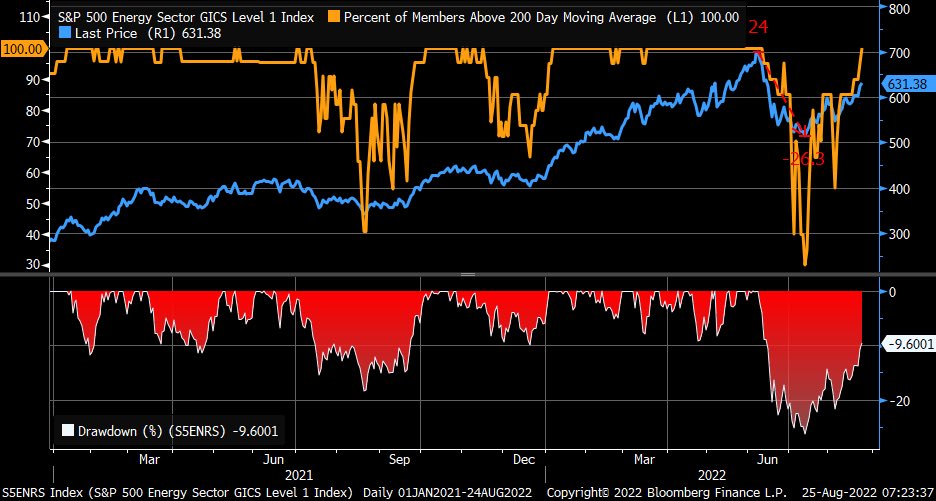It looks like you're new here. If you want to get involved, click one of these buttons!

Hydrogen-based polymer exchange membrane (PEM) fuel cells have been around since the early days of space program. Apollo 13 had an accident that nearly ended the mission. https://nssdc.gsfc.nasa.gov/planetary/lunar/ap13acc.htmlBilled as a “zero emission” mode of transport, the trains mix hydrogen on board with oxygen present in the ambient air, thanks to a fuel cell installed in the roof. This produces the electricity needed to pull the train.
I think they're saying there will be a flight into quality--- Treasuries---- thus raising the price but reducing the yield. As for me, I'm sticking with my stake of 11% of portfolio in Junk. Juicy yield, just now. Reinvesting it all.Not sure I agree with the article posted above. How can bonds rally when the Fed is raising rates until inflation is contained? This can continue until 2023. Powell does not care if the rate height and QT will trigger a recession. Don’t know if the summer rally continues or if that is a bear market rally.
+1, @Old_Joe. I'm still happy with DuckDuckGo as a search engine, which I learned about from you right here on MFO. Nice to have now that we know Google's real mission statement is "Do Be Evil."With respect to anything "Google", just remember that everything that you say or do will be available forever to anyone that Google can make money from.
One of the world’s last processors of rare earth metals outside China is buying mining rights in Greenland to reduce dependence on Russian ore and stabilize prices, in the latest move by Western companies to diversify supply chains following Russia’s invasion of Ukraine.
Rare earth metals are essential for the manufacture of a broad range of modern products, including electric car motors, offshore wind turbines and smart bombs. Demand has soared as automakers switch more of their production to electric vehicles.
Dozens of mostly small companies mine rare earth ore around the world, but only two commercial-scale factories outside China perform the difficult task of chemically separating semi-processed ore into usable material for magnets in electric car motors and other applications. Toronto-based Neo Performance Materials buys semi-processed ore from Russia, the United States and Australia and does the chemical processes at factories in Estonia and China. Another company, Lynas, mines rare earth metals ore in Australia and does the chemical processes in Malaysia.
Neo said on Monday that it was acquiring rare earth mining rights in Greenland from Hudson Resources, a tiny mining company based in Vancouver, British Columbia. The acquisition is the first move into rare earth mining by Neo, whose chief executive said his company planned to start mining and processing ore in Greenland in two to three years, with full production in about five years. The semi-processed ore will be shipped to Neo’s chemical separation factory in Estonia, a former Soviet republic on the Baltic Sea in Eastern Europe. The factory in Estonia currently buys three-fifths of its rare earth ore from Russia and the rest from Utah. The West has imposed many sanctions and other restrictions on companies and exports from Russia, but not yet on rare earth metals.
Neo’s goal is to free itself of the need to buy ore at world prices. These prices fluctuate more widely than most commodities, surging up to 10-fold during periods of geopolitical tensions before crashing once tensions ease. Neo is also preparing to start building a factory in Estonia that will turn processed rare earths into magnets for electric car motors. With European automakers shifting production quickly toward electric cars, the European Union is offering financial assistance for the creation of a mines-to-magnets supply chain within Europe for rare earths.
Although Greenland is geographically part of North America, it is an autonomous district of Denmark, a member of the European Union. Neo is not the first company to try to mine rare earths in Greenland. A consortium including a Chinese state-owned enterprise tried to open a mine at the southern tip of Greenland several years ago, at a rare earths deposit that also holds considerable uranium. That project was blocked by local opponents and regulators worried about the risk of radioactive contamination of the environment. A Canadian geologist who has advised Hudson Resources in Greenland and will now become a consultant to Neo, said the deposit in Sarfartoq being acquired by Neo had 97 percent less radioactive material per ton than the deposit at the southern tip of Greenland.
The Sarfartoq deposit, on Greenland’s western coast, is also considerably smaller than the one at the southern tip of Greenland. Neo said the Sarfartoq deposit still had enough rare earths to meet Neo’s entire worldwide processing needs for at least 30 years, and possibly for a century if further drilling at the edge of the deposit confirms further rare earth ore.
Rare earths, a group of 17 elements near the bottom of the periodic table, are not radioactive, but radioactive contaminants like uranium and thorium occur naturally in rare earth deposits. Controversies over how to dispose of those contaminants have led to the shuttering of rare earth separation factories over the past 40 years in Japan, Australia, France and the United States. Almost all of the American ore is mined in California and goes to China for processing, although a little is produced in Florida and processed in Utah. President Biden and Gov. Gavin Newsom of California announced plans in February to subsidize the restarting of chemical separation in California.
Rare earths are essential but mostly used in trace amounts, so the actual value of the industry is small. Industry analysts put the worldwide value of rare earth ore sales at about $2 billion, and the value of completely processed magnetic powders and other rare earth materials at nearly $8 billion.
© 2015 Mutual Fund Observer. All rights reserved.
© 2015 Mutual Fund Observer. All rights reserved. Powered by Vanilla